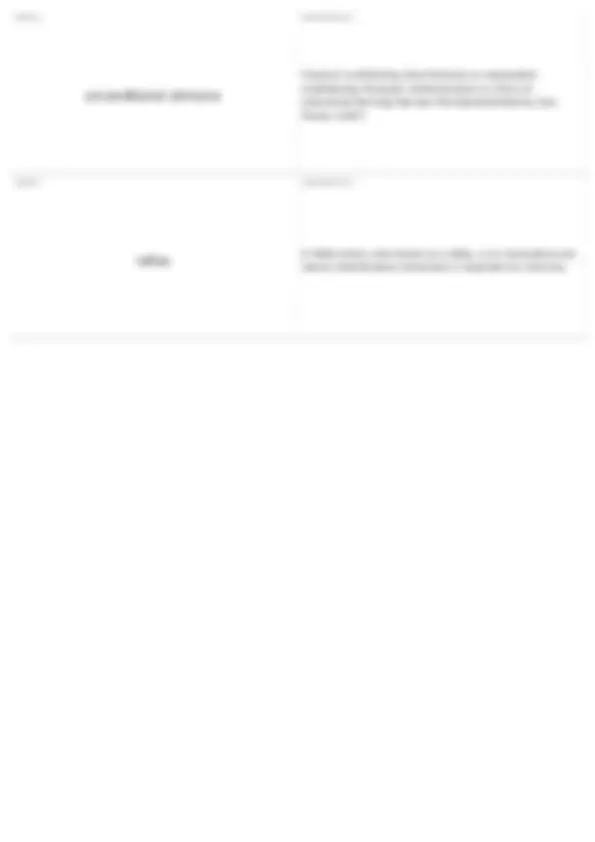



Study with the several resources on Docsity

Earn points by helping other students or get them with a premium plan


Prepare for your exams
Study with the several resources on Docsity

Earn points to download
Earn points by helping other students or get them with a premium plan
Community
Ask the community for help and clear up your study doubts
Discover the best universities in your country according to Docsity users
Free resources
Download our free guides on studying techniques, anxiety management strategies, and thesis advice from Docsity tutors
Definitions for various terms related to learning and conditioning, including habituation, dishabituation, non-associative learning, neutral stimulus, unconditional stimulus, and reflex.
Typology: Quizzes
1 / 2

This page cannot be seen from the preview
Don't miss anything!


TERM 1
DEFINITION 1 a relatively permanent change in behavior or knowledge acquired the experience. TERM 2
DEFINITION 2 decreased responsiveness to unchanging stimuli TERM 3
DEFINITION 3 Learning is acquiring new knowledge, behaviors, skills, values, preferences or understanding, and may involve synthesizing different types of information. TERM 4
DEFINITION 4 increased responsiveness when habituated stimulus change TERM 5
DEFINITION 5 Neutral stimulus is a stimulus which initially produces no specific response other than focusing attention.
TERM 6
DEFINITION 6 Classical conditioning (also Pavlovian or respondent conditioning, Pavlovian reinforcement) is a form of associative learning that was first demonstrated by Ivan Pavlov (1927). TERM 7
DEFINITION 7 A reflex action, also known as a reflex, is an involuntary and nearly instantaneous movement in response to a stimulus.